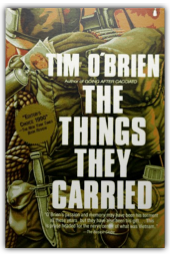
In 1979, Tim O'Brien's Going After Cacciato—a novel about the Vietnam War—won the National Book Award. In this, his second work of fiction about Vietnam, O'Brien's unique artistic vision is again clearly demonstrated. Neither a novel nor a short story collection, it is an arc of fictional episodes, taking place in the childhoods of its characters, in the jungles of Vietnam and back home in America two decades later. 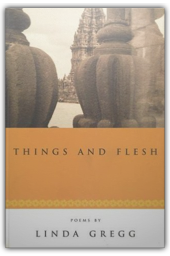
Throughout Things and Flesh, there is a wonderful sense of song, a kind of ringing up and down the scales of being. Here, Linda Gregg engages with the searches and findings of both the intellect and the body. This is poetry beautiful in its attention to the things and flesh of this world, to a life of passionate maturity and substance and the mysteries found within. 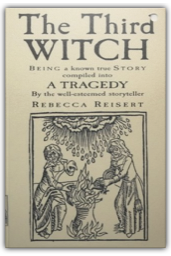
Their life is a desperate struggle for survival: wise-woman Nettle, Mad Helga, little Gillyflower, the girl they took in seven long years ago. They live by selling potions, begging for food, sometimes robbing the dead of the battlefields that scar the Scottish hills every year. But Gilly remembers a happier life. She has dedicated her very being to destroying the man who destroyed that happiness, even though she has no way to reach him. Until the day he saves her life. Now Gilly knows where he is, who he is. Disguised as a poor servant boy, she insinuates herself into his life, subtly begins to shape it. Even as Macbeth becomes King of Scotland, Gilly brings her revenge to its triumphant conclusion. 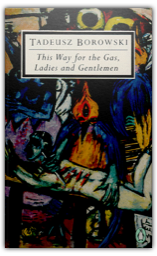
Tadeusz Borowski's concentration camp stories were based on his own experiences surviving Auschwitz and Dachau. In spare, brutal prose he describes a world where the will to survive overrides compassion and prisoners eat, work and sleep a few yards from where others are murdered; where the difference between human beings is reduced to a second bowl of soup, an extra blanket or the luxury of a pair of shoes with thick soles; and where the line between normality and abnormality vanishes. Published in Poland after the Second World War, these stories constitute a masterwork of world literature. |
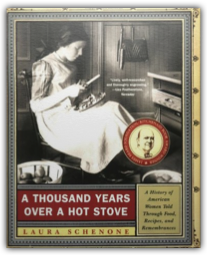
A stunningly illustrated book that celebrates the power of food throughout American history and in women's lives. 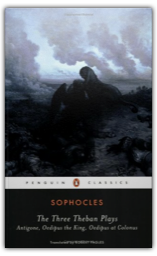
Antigone defending her integrity and ideals to the death, Oedipus questing for his identity and achieving immortality - these heroic figures have moved playgoers and readers since the fifth century BC. Towering over the rest of Greek tragedy, these three plays are among the most enduring and timeless dramas ever written. Robert Fagles' translation conveys all of Sophocles' lucidity and power: the cut and thrust of his dialogue, his ironic edge, the surge and majesty of his choruses and, above all, the agonies and triumphs of his characters. 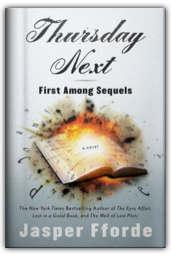
Literary sleuth Thursday Next is out to save literature in the fifth installment of Jasper Fforde’s wildly popular series 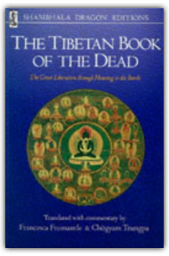
Shows that these ancient teachings are penetrating and relevant, not only for understanding death, but as a guide to life. Illustrated. 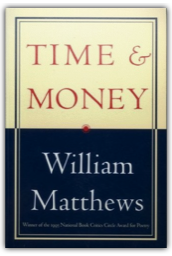
William Matthews's ten books have gradually earned him a place on the first roster of American poets -" as water licks its steady way through stone." " Very little of the poetry of the past twenty years," Henry Taylor has written in the Washington Times, " is more intelligent and engaging than that of William Matthews . .. Admiring gratitude seems perfectly appropriate." The New Yorker has described Matthews's work as " poems that revel in etymology and delight in colloquialism." And Carol Muske, in The Nation, has added: " If asked, I couldn't come up with a poet more in tune with the ironies and stand-up vernacular, the jazz of the everyday, than William Matthews . . . Matthews is a wise and fine poet and a funny person. Like time and money, an unbeatable combination. " This is a large-hearted book, a strong and worldly book, the work of five years by one of the most admired and generous of American poets. The National Book Critics Circle named it the winner of its 1995 award in poet 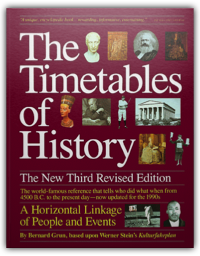
Vast and absorbing, spanning millennia of human history, The Timetables of History, achieves a goal in the study of the past that is unmatched by any other reference volume — it gives us a sweeping overview of the making of the contemporary world. This remarkable book maps out at a glance what was happening simultaneously, from the dawn of history to the present day. Never before has progress been presented with such clarity or with a view that fully captures the essence and the excitement of civilization. |

Raschke-Agostini Library
Collection Total:
1463 Items
1463 Items
Last Updated:
Jan 16, 2011
Jan 16, 2011


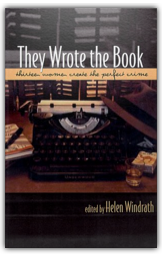


 Made with Delicious Library
Made with Delicious Library